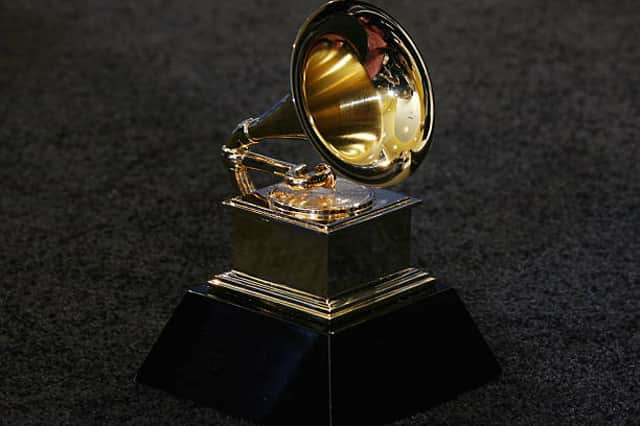Are Grammys made of real gold - and can they be sold?


The Grammy's signature gramophone statuette is among the most prestigious and recognisable awards going. Taking home the coveted award can help boost a musician's career and legacy, but little is known about how valuable the statuette is.
Since the first Grammy Awards ceremony in 1958, thousands of unique, hand-crafted trophies have been dished out to some of music's biggest stars. But how are they manufactured, are they made using real gold and has anyone ever sold a Grammy Award?
Here's everything you need to know.
Advertisement
Hide AdAdvertisement
Hide AdAre Grammys made of real gold?
Yes, but Grammy Awards are not made using solid gold. As reported by Syracuse, Grammy Awards are hand-crafted using a strong zinc alloy named 'Grammium', which is then gold plated. The plating itself consists of both real gold twinned with a different base metal.
Grammy Awards are hand-crafted by a man named John Billings in Ridgway, Colo, who has been tasked with making the statuettes at his shop, Billings Artworks, since 1985. Before then, Billings' mentor Bob Graves cast the award.
Can Grammy Awards be sold?
While the Recording Academy has not publicly confirmed its stance on the matter, the organisation reportedly requires winners to sign an agreement forbidding them to sell their awards. Additionally, the Academy has allegedly opposed the sale of Grammys when winners have previously attempted to sell the statuette at auction.
In 2015, The Champs guitarist Dave Burgess decided to auction off a Grammy Award the 60s rock group won for their hit song Tequila. Speaking to the New York Daily News, Burgess said: “I prefer not to sell my Grammy but there is an illness in my family and we have a lot of doctors bills."
Advertisement
Hide AdAdvertisement
Hide AdAccording to Burgess, the Recording Academy contacted the guitarist to let him know the organisation had not given him permission to sell the award. The Recording Academy also reportedly informed Robert Edward Auctions (REA), via an attorney, that an investigation had been opened to assess the sale.
President of REA, Rob Lipson, said the email 'seemed more bark than bite' and replied: “Great news. I’ve completed your investigation! My findings are as follows: The National Academy of Recording Arts and Sciences, Inc. has absolutely no claim of any kind whatsoever on Mr. Burgess’ 1959 Grammy Award. He can do whatever he wants with it, including sell it.”
It is unknown whether Burgess successfully sold the Grammy at auction.
Comment Guidelines
National World encourages reader discussion on our stories. User feedback, insights and back-and-forth exchanges add a rich layer of context to reporting. Please review our Community Guidelines before commenting.
